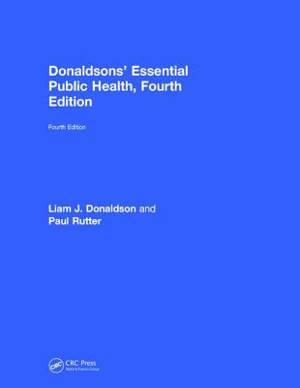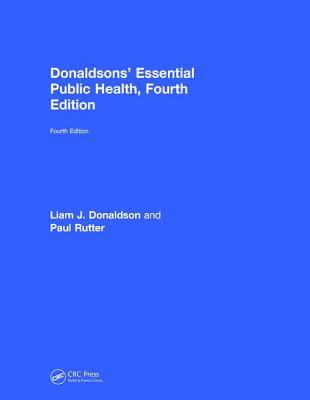
- Retrait gratuit dans votre magasin Club
- 7.000.000 titres dans notre catalogue
- Payer en toute sécurité
- Toujours un magasin près de chez vous
- Retrait gratuit dans votre magasin Club
- 7.000.0000 titres dans notre catalogue
- Payer en toute sécurité
- Toujours un magasin près de chez vous
Description
Donaldsons' Essential Public Health has been in continuous print for 35 years, evolving through successive editions. This unrivalled record of success for a textbook of public health shows the enduring appeal of its content, style, and accessibility to generations of students and practitioners. For many of today's national and global public health leaders, the book was their guide as they began their careers, their benchmark as they passed their examinations and professional accreditation, and remains their companion as a source of reference and refreshed knowledge for teaching and practice.
The book brings together, in one volume, the main health problems experienced by populations and by the key groups within them, the strategies for promoting health and preventing disease, the principles and applications of epidemiology, the main themes of health policy, and a description of health service provision.
This fourth edition marks the biggest change to the book in 20 years. For the first time it sets each key subject area in a global health context, whilst retaining its traditional strength in covering population health for the United Kingdom. New and revised chapters for this edition include:
- Health in a changing world
- Communicable diseases
- Non-communicable diseases
- Social determinants of health
- Quality and safety of healthcare
- Mental health
- Disability
- Health in later life
- Environment and health
- History of public health
The content is wide-ranging and written in an accessible and engaging style. It covers topics as diverse as: the story of the 2014 Ebola virus outbreak in West Africa; the elements of tobacco control policy; the health impact of climate change; the global health organisational architecture; the concept of health; the new paradigm of public mental health; the biological pathways that link to the health effects of social deprivation; the ideal of universal health coverage; the essentials of immunisation; the basis of healthy ageing; the historical events that led to the germ theory of disease and the Victorian sanitary revolution.
This new edition is essential reading for all undergraduate and postgraduate students of public health, medicine, nursing, health policy, social science, and public sector management. Those embarking on a career in public health will find it of great value throughout their professional life. The book is also an extremely useful resource for established practitioners in primary care, doctors, senior nurses, health system managers, healthcare policy makers, civil servants in ministries of health, and members of boards of health organisations.
Spécifications
Parties prenantes
- Auteur(s) :
- Editeur:
Contenu
- Nombre de pages :
- 374
- Langue:
- Anglais
Caractéristiques
- EAN:
- 9781138722019
- Date de parution :
- 14-11-17
- Format:
- Livre relié
- Format numérique:
- Genaaid
- Dimensions :
- 216 mm x 279 mm
- Poids :
- 1156 g

Les avis
Nous publions uniquement les avis qui respectent les conditions requises. Consultez nos conditions pour les avis.






